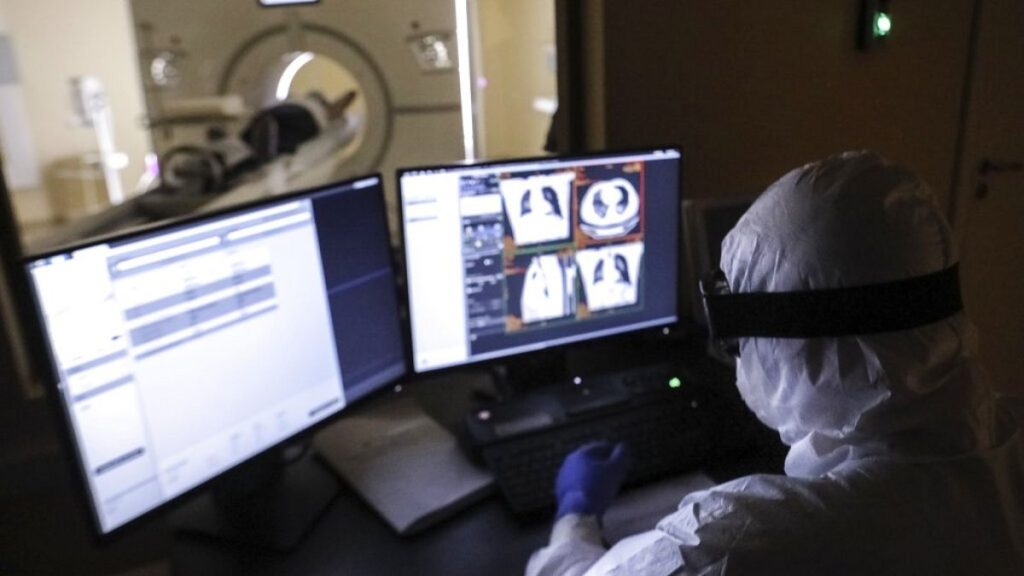Europe, despite being a hub for oncology start-ups, is facing a concerning trend of falling behind the United States and China in the development and patenting of cutting-edge cancer technologies. This decline is particularly noticeable in rapidly expanding fields like cellular immunotherapy, healthcare informatics, and non-coding nucleic acids, areas crucial to the future of cancer treatment. While the number of early-stage oncology start-ups in Europe surpasses that of the US, the continent struggles to provide the necessary environment for these companies to scale and compete globally. This inability to translate promising research into marketable products represents a missed opportunity for Europe to capitalize on its initial investments in research and development. The US, on the other hand, maintains a strong lead in patent activity, demonstrating its ability to not only generate innovative ideas but also to shepherd them through the development process to commercial success. China’s rapid growth in patent filings further underscores the intensifying global competition in cancer technology.
The disparity between Europe’s abundance of early-stage companies and its lagging patent activity highlights a critical weakness in the European innovation ecosystem. While the continent excels at fostering initial research and development, it appears to lack the resources, infrastructure, or strategic framework needed to support the growth and commercialization of these ventures. This “scale-up gap” prevents European start-ups from translating their research into tangible products and therapies, allowing competitors in the US and China to capitalize on these advancements. The consequence is a loss of potential economic benefits and a diminished capacity to contribute to global advancements in cancer care. Furthermore, this trend raises concerns about Europe’s future competitiveness in the rapidly evolving field of oncology.
The challenges facing Europe are further compounded by the rapid pace of technological advancement in cancer research. Fields like immunotherapy, gene therapy, and personalized medicine are evolving at an unprecedented rate, demanding continuous innovation and investment. Europe’s current trajectory suggests a risk of being left behind in these crucial areas, potentially impacting its ability to provide cutting-edge cancer care to its citizens. The comparison with the US and China, both of which exhibit robust growth in these fields, emphasizes the urgency for Europe to address its structural shortcomings and foster a more dynamic and competitive environment for its oncology start-ups.
The report highlighting this trend serves as a stark reminder of the need for a more cohesive and effective European strategy for fostering innovation in cancer research. Addressing this challenge requires a multi-pronged approach, including increased investment in research and development, streamlining regulatory processes, and creating a more supportive environment for start-ups to access funding and scale their operations. It also necessitates greater collaboration between academic institutions, research organizations, and industry partners to accelerate the translation of research findings into practical applications. Failure to address these issues risks jeopardizing Europe’s position as a global leader in healthcare innovation.
The specific areas where Europe is falling behind, such as cellular immunotherapy, healthcare informatics, and non-coding nucleic acids, are particularly concerning given their potential to revolutionize cancer treatment. These fields represent the forefront of cancer research and hold immense promise for developing more effective and targeted therapies. Europe’s declining market share in these areas suggests a failure to capitalize on the potential of its scientific expertise and entrepreneurial spirit. Rectifying this situation requires a focused effort to support research and development in these critical fields, ensuring that European scientists and companies have the resources and support they need to compete on the global stage.
In conclusion, Europe’s current predicament in cancer technology development presents a significant challenge but also an opportunity for growth and transformation. By acknowledging its weaknesses and implementing strategic measures to strengthen its innovation ecosystem, Europe can leverage its existing strengths in basic research and entrepreneurial activity to regain its competitive edge. This requires a concerted effort from policymakers, investors, researchers, and industry leaders to create a more supportive and dynamic environment for innovation, ensuring that Europe remains at the forefront of the global fight against cancer. Failure to act decisively will not only have economic consequences but will also limit Europe’s ability to contribute to the development of life-saving cancer treatments.














